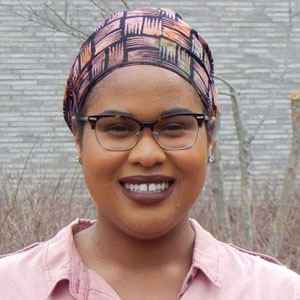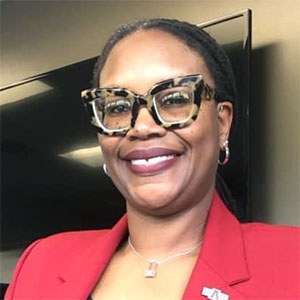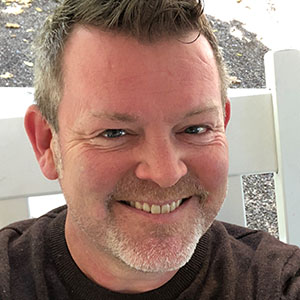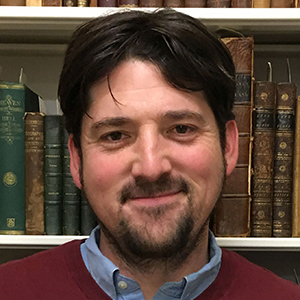Join the University Libraries and the Office for Diversity and Inclusion Friday, Oct. 23 at 1 p.m. for the Archives Month panel discussion “Confronting Our Inherent Biases: Their Impact on Collections, Research and Scholarship.” Panelists will discuss issues of antiracism, how inherent bias affects what information is made available through libraries and other cultural heritage institutions, and what can be done to mitigate biases. This event is free and open to the public. Registration is required.
Panelists include Valencia Johnson, Cherisse Jones-Branch, Stace Treat and Joshua Youngblood.
 Johnson serves as the archivist for student life at Princeton University. In addition to being a certified archivist, she holds a Bachelor of Arts in American studies and history from the University of Kansas and a Master of Arts in museum studies from Baylor University. She engages with student organizations on managing and preserving records in analog and born-digital formats. As the creator of the Amp Up Your Archives program, she works to create records management and archival initiatives to inspire students to view their records and materials as important documentation that is an equal to the administrative record of the university.
Johnson serves as the archivist for student life at Princeton University. In addition to being a certified archivist, she holds a Bachelor of Arts in American studies and history from the University of Kansas and a Master of Arts in museum studies from Baylor University. She engages with student organizations on managing and preserving records in analog and born-digital formats. As the creator of the Amp Up Your Archives program, she works to create records management and archival initiatives to inspire students to view their records and materials as important documentation that is an equal to the administrative record of the university.
Jones-Branch serves as the James and Wanda Lee Vaughn Endowed Professor of History and dean of the Graduate School at Arkansas State University. She earned bachelor’s and master’s degrees from the College of Charleston, South Carolina, and a doctorate in history from The Ohio State University. She has been teaching at ASU since 2003 and has authored numerous articles on African American, women’s and civil rights history, as well as rural activism.
In 2014, she published Crossing the Line: Women and Interracial Activism in South Carolina During and After World War II, and she is the co-editor of Arkansas Women: Their Lives and Times, published by the University of Georgia Press in 2018. Her second monograph, Better Living by Their Own Bootstraps: Rural Black Women’s Activism in Arkansas, 1914-1965, is forthcoming in 2021 from the University of Arkansas Press.
“My research is very much informed by the significance of mining under or never explored resources,” said Jones-Branch. “These are resources found in ‘home archives’ shared by those who never imagined their stories would ever be told. This also includes examining archival collections that have not been well utilized to flesh out the stories and experiences of those who are unknown or have been long forgotten. It is necessary work that often leads to complex, nuanced and fascinating histories.”
 Treat serves as head of interpretation in the Exhibitions Department at Crystal Bridges Museum of American Art. In this role, he serves as the host of Museum Way, the podcast of Crystal Bridges, and previously served for two years as the co-chair of the Inclusion, Diversity, Equity, and Accessibility Committee. During his tenure, Treat helped guide the planning and implementation of an IDEA Vision Statement and list of primary goals linked to the institution’s broader strategic plan. Treat oversaw the development of five independent resource groups: Rainbow Bridges, SOMOS, Black Staff, Indigenous Staff and Veterans & Families.
Treat serves as head of interpretation in the Exhibitions Department at Crystal Bridges Museum of American Art. In this role, he serves as the host of Museum Way, the podcast of Crystal Bridges, and previously served for two years as the co-chair of the Inclusion, Diversity, Equity, and Accessibility Committee. During his tenure, Treat helped guide the planning and implementation of an IDEA Vision Statement and list of primary goals linked to the institution’s broader strategic plan. Treat oversaw the development of five independent resource groups: Rainbow Bridges, SOMOS, Black Staff, Indigenous Staff and Veterans & Families.
 Youngblood is the instruction and outreach unit head for the Special Collections division of the University of Arkansas Libraries, where he also serves as the history and rare books librarian. Before joining the U of A in 2011, he was a member of the Florida Memory Project of the State Archives of Florida. In addition to assisting students and researchers at the university and across the state of Arkansas, Youngblood leads development of Special Collections’ rare and Arkansas print collections. He has published on the history of Arkansas, lynching and reform movements in the American South. A certified archivist, he is immediate past president of the Society of Southwest Archivists and current board member of the Washington County (Arkansas) Historical Society.
Youngblood is the instruction and outreach unit head for the Special Collections division of the University of Arkansas Libraries, where he also serves as the history and rare books librarian. Before joining the U of A in 2011, he was a member of the Florida Memory Project of the State Archives of Florida. In addition to assisting students and researchers at the university and across the state of Arkansas, Youngblood leads development of Special Collections’ rare and Arkansas print collections. He has published on the history of Arkansas, lynching and reform movements in the American South. A certified archivist, he is immediate past president of the Society of Southwest Archivists and current board member of the Washington County (Arkansas) Historical Society.
“Archives Month is a national initiative to raise awareness about the work we do every day in support of our researchers and their scholarship,” said Lori Birrell, associate dean for Special Collections. “This year, we’re turning inward to examine these practices and how our inherent biases impact knowledge creation.”
